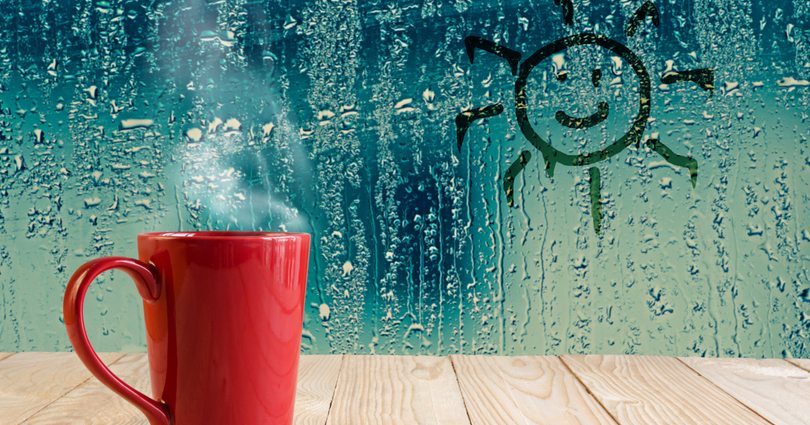How To Support A Healthy Coffee Love Affair

What goes best with a cup of coffee? Another cup. ~ Henry Rollins (Tweet this)
If you are at all like more than half the adult population around the world, then chances are you drink coffee each day. With this type of routine, come end of the year, you will have consumed over ten pounds of it! That is true coffee love! But like any true romance, you may be in it “for better or for worse, in sickness and in health.”
On top of that . . . for the most part, we all believe that our coffee love is good for us. As they say though, the poison is in the dose, and when you think about it, coffee is more of a drug than it is a food. This is why it’s all too easy to become addicted to drinking it daily. It’s enough that it has the ability to cause cravings by altering brain chemicals. It’s worse that the stuff tastes and smells so great, thus making it easier to return to time and time again.
Perhaps this is what makes our coffee love so ‘unhealthy’ to begin with. Anything that can make us dependent is liable to throw our biochemistry off, making it difficult for our bodies to achieve balance and heal itself. Otherwise, the antioxidant and nutritional properties of coffee would make it healthy for us. However, this usually isn’t the case when it comes to coffee consumption.
In fact, for some people, their coffee love is so powerful that they become entirely dependent on coffee for energy. They find themselves consuming several cups or an entire pot just to get through the day! Additionally, coffee is more than a stimulating beverage; it’s a social event.
People often gather entire meetings, dates and hang outs, centering solely around coffee. It’s also not uncommon for consumers to spend an obscene amount of money on a sugar-filled concoction from local coffee shops and cafes.
With such popularity surrounding a beverage it’s time we got to the bottom of it. If the saying is true, that the poison is in the dose, then there must be a way we can have our coffee and drink it too. After all, health is a balance. Let’s see what we can do to manage our coffee love and make coffee something more nourishing for our bodies.
Coffee is a hug in a mug. ~ Unknown (Tweet this)
What happens when we drink too much
According to Traditional Chinese Medicine, coffee is a warming substance in the body. Traditional Chinese Medicine views the body as a whole and thus, takes approaches to balance the body. They reference disease in the form of elements; dry, damp, hot, cold, etc.
Coffee is praised for reducing dampness in the body; however, like any other substance it can have harmful side effects if not valued as a medicine. This is where balance comes in. If the body loses too much dampness, it can become overly dry and cause issues like;
- Poor sleep
- Anxiety
- PMS & Menstrual Cramps
These are common symptoms of an excessive intake of coffee.
How to drink coffee in balance (aka keep your coffee love in check!)
If we keep in mind the interconnectedness of the body and see coffee as medicine, we can take a more strategic, balanced approach to consuming it—without running into health concerns.
Before you start your next brew, it’s important to know that coffee is actually one of the largest pesticide-riddled crops on Earth. Therefore, we want to be sure that our coffee is organic or, even better, tested for pesticides and other toxins.
Because coffee can drain dampness from the body—which is a good thing—in excess it can also dry out the body. It does so by over-exhausting the kidneys, which govern our bodily fluids. These are the body’s lubricating fluids, which play a role in nourishing organs, producing sex fluids, digestive juices, keeping joints flexible and keeping the skin, hair and nails, strong and beautiful.
To really know how helpful something will be for us, it requires a very broad view. While it is important to see how our bodies are responding to food, it’s equally important to see what else may be influencing the flux of our body. For example, the fall season is an extremely dry time of the year.
We usually respond to the environment around us to a degree so it is beneficial that we are doing things to keep ourselves in balance. Just as we would change our clothing with the seasons, we want to also adapt our diets.
In Autumn we want to actually consume more moistening foods, considering the weather is already strongly influencing our bodies to become more dry. We can accomplish this by consuming foods and herbs that moisten the yin energy in the body.
This will prevent symptoms of dryness, such as the ones we addressed earlier as well as dry skin, coughs, dandruff, and joint/muscle aches. Remember, coffee is particularly drying, so this might be a good time to find an alternative to coffee until the seasons change.
Coffee alternatives
If your coffee love has now become a mandatory event, try to limit it to one cup per day. This will help move any stagnation inside the blood. However, any more than one cup can cause more stagnation, which can lead to many pathological issues in the body. Remember, it’s all about balance here!
Because coffee is a stimulant, it affects the kidneys and adrenal glands, which in Chinese Medicine are associated with our will power. This is why too much coffee can lead to fatigue and lowered will power, by exhausting the kidney and adrenal axis.
The best alternative to coffee is going to be moderating your intake. You don’t have to quit it completely because as we see the poison truly is in the dose! A great way to do this is to simply take breaks from coffee—a day on, a day off or some fashion of this cycling. During off days however, there a few excellent substitutes we can experiment with so we do not feel deprived of a delicious beverage.
Perhaps the best alternative (healthwise) for your coffee love is Gynostemma.
Gynostemma is a powerful tonic herb that is commonly used as a tea. It’s a wonderful coffee substitute for many reasons. First, because coffee can cause a dryness imbalance, Gynostemma actually nourishes the yin of the lungs, kidneys and other organs usually affected by coffee. So in other words, Gynostemma counterbalances the drying effect of coffee. Alternating between these two is a great option!
Additionally, Gynostemma is a powerful (the most powerful) adaptogenic herb in the world, meaning it helps us adapt to stress. This is great because coffee can deplete our ability to adapt to stress over time by exhausting the adrenal glands. Gynostemma is the best herb for building the adrenal glands!
It is also highly anti-inflammatory, especially for the tissues in the digestive tract. In Chinese Medicine, the large intestine is strongly connected to the lungs—both of which are usually affected most by the fall season. Nourishing the digestive tract and lungs is a great way to improve focus without over-stimulating. Gynostemma is a great herb to take for balancing these organs, bringing more inner harmony to our body.
Other tips & alternatives
You might also enjoy chaga tea, roasted dandelion root and chicory as a coffee substitute that tastes very similar to coffee. These mushrooms and herbs also have medicinal qualities. Brew them in a similar way you would coffee or look for extracted powders that mix right into hot or cold water. My favorite sources for these herbs and Gynostemma is through a company called Hyperion Herbs. I also enjoy the products at Dragon Herbs and VitaJing Herbs.
For the die-hard, coffee love affair, I would suggest looking into Bulletproof Coffee. These are particular high-quality beans that are free of any toxins, including sneaking mold toxins that might be responsible for a lot of the negative side effects from coffee—and there’s some pretty interesting research on their site.
Also, the company recommends adding healthy fats like grass-fed ghee to the coffee, which provides fuel for our brain, balances blood sugar and cuts food cravings, but also slows the release of caffeine. This curbs the stimulating effects of the caffeine, giving us a way more stable energy while also doing less harm to the adrenals. This may be a much more helpful approach to long-term coffee consumption.









Leave a Reply